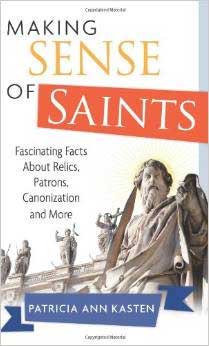Episode 2- What is the relationship between religion and science?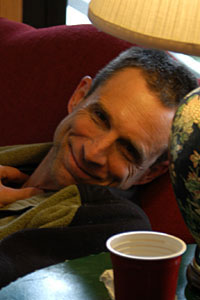
Podcast: Play in new window | Download (Duration: 29:39 — 20.4MB) | Embed
Subscribe: Apple Podcasts | Spotify | Amazon Music | Android | Pandora | iHeartRadio | JioSaavn | Podchaser | Gaana | Podcast Index | Email | TuneIn | Deezer | Anghami | RSS | More
Question 1 Article 2. Whether sacred doctrine is a science.
Objection 1: It seems that sacred doctrine is not a science. For every science proceeds from self-evident principles. But sacred doctrine proceeds from articles of faith which are not self-evident, since their truth is not admitted by all: “For all men have not faith” (2 Thess. 3:2). Therefore sacred doctrine is not a science.
Objection 2: Further, no science deals with individual facts. But this sacred science treats of individual facts, such as the deeds of Abraham, Isaac and Jacob and such like. Therefore sacred doctrine is not a science.
On the contrary, Augustine says (De Trin. xiv, 1) “to this science alone belongs that whereby saving faith is begotten, nourished, protected and strengthened.” But this can be said of no science except sacred doctrine. Therefore sacred doctrine is a science.
I answer that, Sacred doctrine is a science. We must bear in mind that there are two kinds of sciences. There are some which proceed from a principle known by the natural light of intelligence, such as arithmetic and geometry and the like. There are some which proceed from principles known by the light of a higher science: thus the science of perspective proceeds from principles established by geometry, and music from principles established by arithmetic. So it is that sacred doctrine is a science because it proceeds from principles established by the light of a higher science, namely, the science of God and the blessed. Hence, just as the musician accepts on authority the principles taught him by the mathematician, so sacred science is established on principles revealed by God.
Reply to Objection 1: The principles of any science are either in themselves self-evident, or reducible to the conclusions of a higher science; and such, as we have said, are the principles of sacred doctrine.
Reply to Objection 2: Individual facts are treated of in sacred doctrine, not because it is concerned with them principally, but they are introduced rather both as examples to be followed in our lives (as in moral sciences) and in order to establish the authority of those men through whom the divine revelation, on which this sacred scripture or doctrine is based, has come down to us.
For an online version of St. Thomas Aquinas’ “Summa” click here
“Christian Apologetics with Dr. R. R. Reno” explores numerous facets of faith and reason in the life of the Church and the world. Grounded on the work of giants, such as St. Thomas Aquinas, St. Bonaventure, Blessed John Newman, soon-to-be Blessed John Paul II, G. K. Chesterton, Blaise Paschal and Stephen Barr, Dr. Reno helps us to open our minds to make the journey to our hearts.
R. R. Reno is the editor at First Things: A Journal of Religion, Culture, and Public Life, and Professor of Theology, currently on leave from Creighton University. His theological work has been published in many academic journals. Essays and opinion pieces on religion, public life, contemporary culture, and current events have appeared in Commentary, and the Washington Post. In Fighting the Noonday Devil Reno suggests that putting ourselves at the disposal of what is real is what trains us for true piety. His other recent books include Genesis: Brazos Theological Commentary on the Bible and Sanctified Vision: An Introduction to Early Christian Interpretation of the Bible.

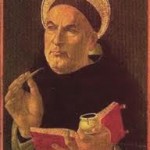
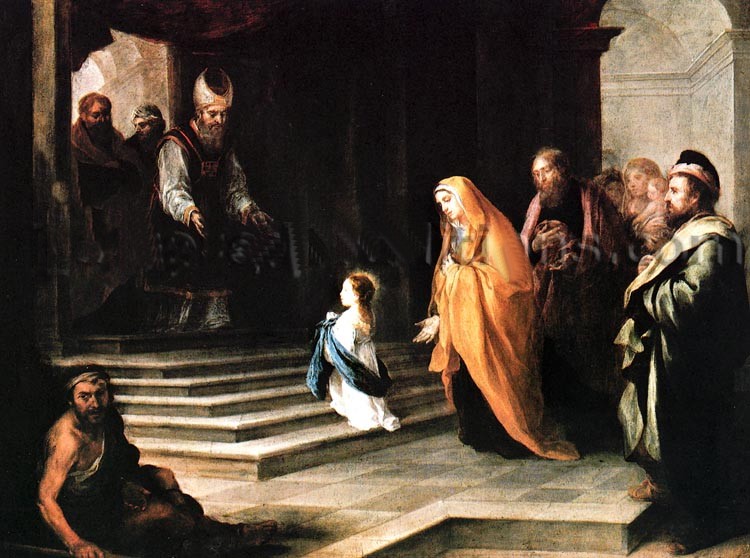
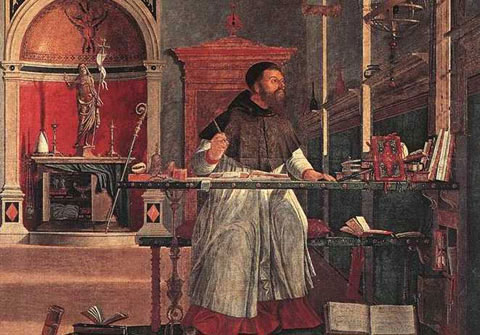
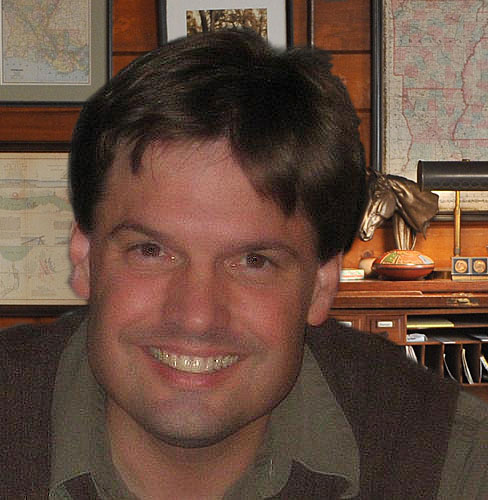
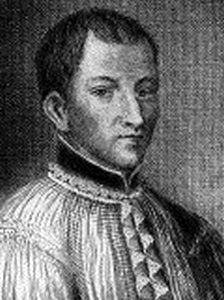
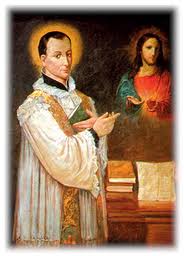
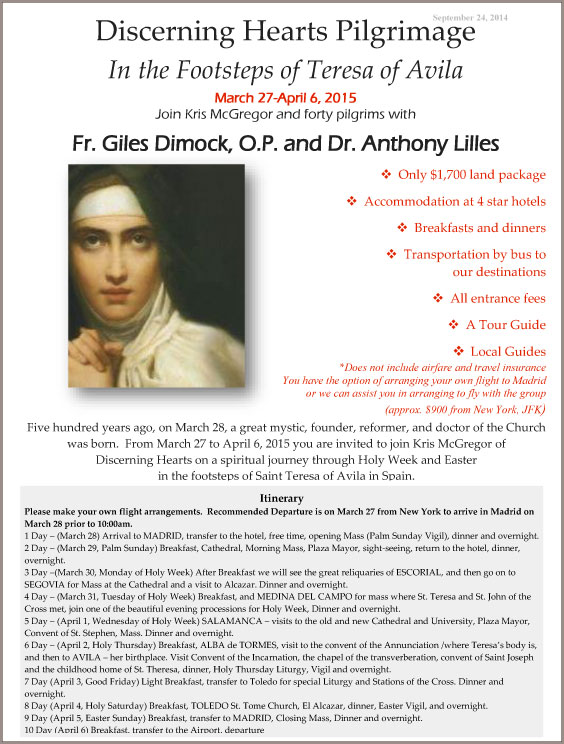
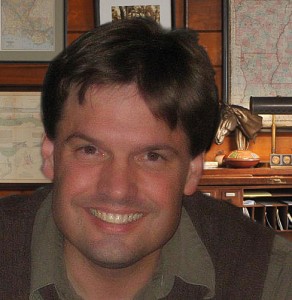
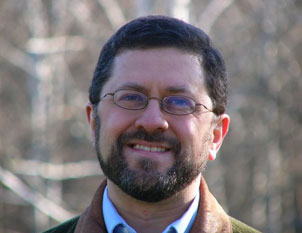
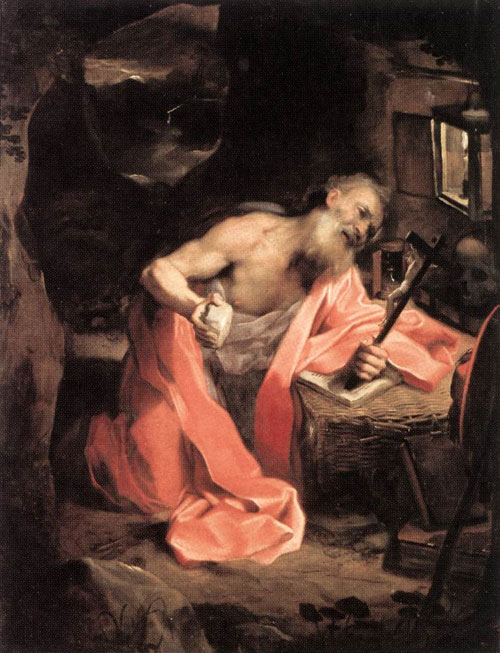
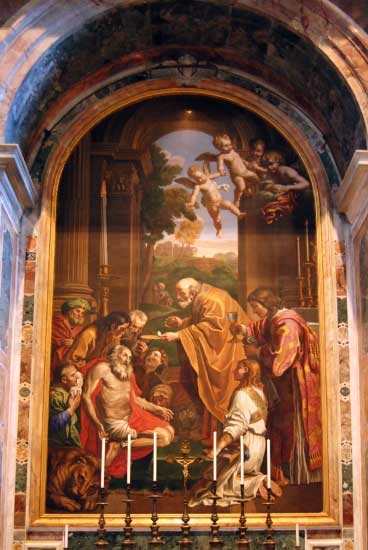
 St. Hildegard and “The Creation and The Fall” and the Battle of Prayer – The Mystery of Faith in the Wisdom of the Saints
St. Hildegard and “The Creation and The Fall” and the Battle of Prayer – The Mystery of Faith in the Wisdom of the Saints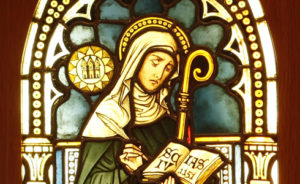
 Dr.Anthony Lilles is a Catholic husband and father of three teaching Spiritual Theology at St. John Vianney Theological Seminary. He teaches spiritual theology and spiritual direction to transitional deacons, and the spiritual classics to the men who enter the Spirituality Year, a year of prayer in preparation for seminary formation. He is the author of the “
Dr.Anthony Lilles is a Catholic husband and father of three teaching Spiritual Theology at St. John Vianney Theological Seminary. He teaches spiritual theology and spiritual direction to transitional deacons, and the spiritual classics to the men who enter the Spirituality Year, a year of prayer in preparation for seminary formation. He is the author of the “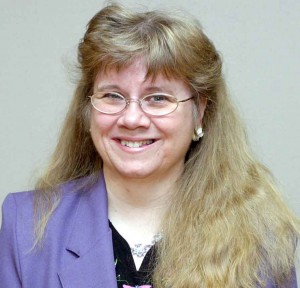 delightful book! Not only is the canonization process fully illuminated, but Patricia has filled the book with fascinating stories and little known facts. Everything you ever wanted to know, from the use of relics and holy cards to how miracles are determined can be found in this excellent book brought to us by publisher, Our Sunday Visitor. A thoroughly engaging read.
delightful book! Not only is the canonization process fully illuminated, but Patricia has filled the book with fascinating stories and little known facts. Everything you ever wanted to know, from the use of relics and holy cards to how miracles are determined can be found in this excellent book brought to us by publisher, Our Sunday Visitor. A thoroughly engaging read. 